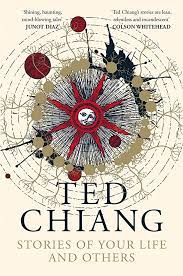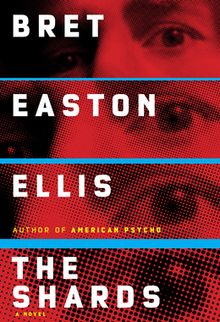In varied perspectives...
Title: A Journey Through Time and Memory: An Academic Review of "Before the Coffee Gets Cold" by Toshikazu Kawaguchi Publication date. 3 Oct. 2023.
Abstract:
Toshikazu Kawaguchi's "Before the Coffee Gets Cold" is a novel that weaves an intricate tapestry of time, memory, and human relationships. This academic review critically examines the literary merits and thematic elements of this work, delving into its unique narrative structure and philosophical underpinnings.
Introduction:
Kawaguchi's narrative unfolds within the confines of a Tokyo café, where a peculiar chair allows visitors to travel back in time to revisit pivotal moments in their lives. The book explores the intricate interplay between temporal linearity and human existence, offering readers a compelling fusion of magical realism and introspective philosophy.
Narrative Structure and Temporal Manipulation:
One of the novel's remarkable achievements is its nonlinear narrative structure, wherein multiple characters embark on journeys through time, confronting unresolved issues and unfulfilled desires. Kawaguchi's adept manipulation of time imbues the work with a rich sense of nostalgia and inevitability. The author employs a circular storytelling technique, emphasizing the cyclical nature of human experiences and the eternal recurrence of memories.
Character Development and Human Relationships:
Kawaguchi artfully constructs his characters, utilizing the café's temporal anomaly to delve into their innermost thoughts, regrets, and desires. Each character's journey through time serves as a vehicle for profound self-reflection and personal growth. The book's exploration of the fragility and resilience of human relationships is poignant, invoking readers' empathy as they witness the characters grapple with their past and present.
Themes of Regret, Redemption, and Existentialism:
"Before the Coffee Gets Cold" is replete with existential themes, addressing the impermanence of life, the inevitability of regret, and the possibility of redemption. The café itself becomes a metaphorical liminal space where individuals confront their choices and seek solace in revisiting their pasts.
Conclusion:
Toshikazu Kawaguchi's "Before the Coffee Gets Cold" transcends the conventional boundaries of time and narrative structure, inviting readers on a contemplative journey into the essence of human existence. Its thought-provoking themes, coupled with meticulous character development, render it a literary work of substance and significance. This book serves as an evocative testament to the enduring power of memory, regret, and the ceaseless pursuit of redemption in the human experience.
Title: Unveiling the Complexity of Reality and Identity: "Stories of Your Life and Others" by Ted Chiang..Originally published: November 1998
Abstract:
Ted Chiang's collection of speculative short stories, "Stories of Your Life and Others," transcends the boundaries of traditional science fiction literature. This academic review dissects Chiang's profound narratives, delving into the philosophical inquiries, linguistic prowess, and imaginative scope that define this remarkable work.
Introduction:
Chiang's anthology invites readers into a realm where science, philosophy, and the human condition coalesce in mesmerizing tales. It is a testament to the author's intellectual depth and narrative dexterity, offering a captivating journey through speculative realities and thought-provoking scenarios.
Linguistic Complexity and Narrative Structure:
Chiang's stories are characterized by their linguistic precision and intellectual rigor. His meticulous use of language, often infused with scientific jargon, adds layers of authenticity to his narratives. The non-linear narrative structures, as exemplified in "Story of Your Life," engage readers in a cerebral dance with time, memory, and the essence of consciousness.
Philosophical Inquiry:
At the core of Chiang's work lies a profound exploration of philosophical themes. His stories grapple with the nature of identity, determinism, free will, and the limits of human understanding. "Hell Is the Absence of God" poses existential questions about faith and morality, while "Tower of Babylon" challenges conventional notions of space and cosmology.
Scientific Speculation and Ethical Dilemmas:
Chiang's meticulous research and imaginative speculation render his narratives scientifically plausible. "Division by Zero" confronts the concept of mathematical certainty and its implications on human psychology. "The Merchant and the Alchemist's Gate" elegantly intertwines time travel with moral dilemmas, sparking introspection about the consequences of our choices.
Conclusion:
"Stories of Your Life and Others" is a testament to Ted Chiang's ability to merge the intellectual rigor of speculative science fiction with the lyrical beauty of language. This collection transcends the confines of genre fiction, inviting readers to ponder profound questions about existence, identity, and the nature of reality. Chiang's narratives are an intellectual feast that challenges preconceived notions, making this book an indispensable addition to the canon of speculative literature. It is a remarkable achievement that will continue to stimulate philosophical discourse and literary appreciation for years to come.
Title: Navigating the Labyrinth of Time: An Academic Analysis of "Recursion" by Blake Crouch
Publication Date: 11 June 2019
Abstract:
Blake Crouch's "Recursion" is a narrative tour de force that seamlessly interlaces the dimensions of time, memory, and identity. This academic review meticulously explores Crouch's literary craftsmanship, his deft manipulation of temporal intricacies, and the profound philosophical inquiries embedded within this captivating work.
Introduction:
"Recursion" propels readers into a mind-bending exploration of reality, consciousness, and the elasticity of time. Crouch's narrative prowess is evident in his ability to enthrall and challenge readers in equal measure, forging a path into the uncharted territory of speculative fiction.
Temporal Complexity and Narrative Structure:
Crouch's narrative unfolds with a meticulous complexity reminiscent of a Möbius strip, continuously twisting and folding back upon itself. The non-linear structure immerses readers in the disorienting experience of time displacement, mirroring the characters' struggle to grasp the ever-shifting boundaries of reality. The dual narrative perspectives of NYPD Police Officer Barry Sutton and Helena Smith,a neuroscientist, serve as conduits for exploring the temporal paradoxes, rendering the narrative a multifaceted jewel of storytelling.
Philosophical and Ethical Inquiries:
At the heart of "Recursion" lies a profound meditation on the nature of memory, identity, and the moral dilemmas precipitated by the manipulation of time. The ethical implications of erasing painful memories and altering the past resonate with readers, inviting contemplation of the consequences of tampering with the fabric of existence.
Scientific Speculation and Technological Realism:
Crouch's narrative is underpinned by meticulous research, lending an air of scientific authenticity to the speculative elements. The plausible extrapolation of quantum physics and neurobiology amplifies the narrative's impact, making the unimaginable seem tantalizingly tangible.
Conclusion:
"Recursion" is a literary marvel that catapults readers into a labyrinthine exploration of time and memory. Blake Crouch's storytelling acumen, combined with his rigorous scientific grounding, culminates in a narrative that transcends genre boundaries. This work forces readers to confront profound questions about the nature of consciousness, the malleability of reality, and the moral quandaries that accompany technological advancement. "Recursion" stands as a testament to the limitless potential of speculative fiction to inspire intellectual reflection and emotional resonance, cementing Crouch's place as a luminary in contemporary literature.
Title: A Riveting Journey Through Time and Morality: A Review of "Wrong Place Wrong Time" by Gillian McAllister Publication Date: 2 August 2022
Gillian McAllister's "Wrong Place Wrong Time" is a riveting exploration of the human condition, moral quandaries, and the unyielding grip of time. With an intriguing premise, this novel catapults readers into a world where choices and consequences collide.
Plot and Premise:
The story opens with an astonishing act of violence witnessed by Jen, a mother waiting for her teenage son Todd's return. When Todd is apprehended as the prime suspect, Jen's life takes a surreal turn as she finds herself trapped in a time loop, reliving the fateful night repeatedly. McAllister's narrative mastery shines as she unravels the mystery behind the murder while delving into the intricate workings of human emotions, relationships, and moral dilemmas.
Character Development:
Jen's character is the epicenter of this narrative rollercoaster. Readers are drawn into her emotional turmoil, her relentless pursuit of the truth, and her moral struggles as she confronts her son's alleged crime. McAllister crafts Jen's character with depth and authenticity, making her journey of self-discovery and redemption both compelling and relatable.
Temporal Paradoxes and Ethical Quandaries:
The novel skillfully navigates the complexities of time manipulation and its ethical implications. As Jen grapples with the repeated day, readers are prompted to reflect on fate, free will, and the concept of second chances. McAllister's exploration of these themes adds layers of intellectual intrigue to the narrative.
Narrative Prowess:
McAllister's storytelling prowess is evident in her ability to maintain tension and suspense throughout the novel. The repetitive structure of the time loop does not detract from the narrative's momentum; instead, it amplifies the urgency of Jen's mission to uncover the truth.
Conclusion:
"Wrong Place Wrong Time" is a mesmerizing blend of suspense, psychological drama, and philosophical exploration. Gillian McAllister's compelling narrative defies the constraints of time and morality, immersing readers in a world where choices reverberate endlessly. This novel challenges our understanding of justice, forgiveness, and the intricate tapestry of human existence. It is a thought-provoking and emotionally resonant journey that lingers in the mind long after the final page is turned. For those seeking a gripping and introspective read, "Wrong Place Wrong Time" delivers an unforgettable experience.
Publication Date: 29 September 2020
In the literary realm, there are books that entertain, books that inform, and then there are books that resonate on a profoundly personal level. "The Midnight Library" by Matt Haig firmly belongs to the latter category, a beautifully woven tapestry of fiction that transcends genres and whispers to the soul.
Plot and Premise:
At the heart of this mesmerizing narrative lies the Midnight Library—a place where the infinite possibilities of life converge. The protagonist, Nora Seed, finds herself in this ethereal library on the cusp of life and death, offered a chance to explore her regrets and unlived dreams. Haig's premise is imaginative, yet its emotional depth is strikingly real. Readers are invited on a poignant journey through Nora's life as she navigates the books of her alternate destinies, each one revealing a unique facet of her existence.
Character Development:
Haig's portrayal of Nora is nothing short of masterful. She is a character of extraordinary depth and authenticity, her vulnerabilities and fears mirroring our own. As she slips between the pages of her different lives, the transformation of her character is a testament to Haig's storytelling prowess.
Themes of Regret and Redemption:
"The Midnight Library" is, at its core, an exploration of human regret and the pursuit of happiness. Haig deftly examines the choices we make, the paths not taken, and the ultimate quest for self-acceptance and fulfillment. The novel resonates with readers on a universal level, prompting introspection about our own lives and the roads we've traveled.
Prose and Imagination:
Haig's prose is both eloquent and accessible, a delightful blend of poetic lyricism and conversational storytelling. His descriptions of the Midnight Library's surreal landscapes and the myriad lives within its shelves are vivid and enchanting. The novel's structure, with its concise chapters and compelling pacing, ensures that readers are bound to the narrative like an irresistible, otherworldly force.
Conclusion:
In "The Midnight Library," Matt Haig has penned a modern classic that stands as a luminous beacon in contemporary literature. It is a poignant reminder that our lives are a symphony of choices, regrets, and untold possibilities. Through Nora's journey, we are invited to reflect on our own paths and, perhaps, find solace in the understanding that it is never too late to redefine our stories. With its exquisite prose, profound themes, and sheer emotional resonance, "The Midnight Library" is not merely a book to read; it is a book to treasure, to cherish, and to revisit whenever we need a reminder of the boundless potential for change and growth in our lives.
Publication Date: 5 April 2022
Emily St. John Mandel, known for her mastery of weaving intricate narratives, delivers another tour de force with "Sea of Tranquility." This mesmerizing novel spans centuries and explores the enigmatic connection between time, art, and the human soul.
Plot and Premise:
"Sea of Tranquility" introduces readers to a captivating web of events that traverse time and space. The tale commences with a haunting violin melody echoing through the Canadian woods in 1912, an occurrence inexplicably captured by a modern-day videographer. This enigmatic phenomenon resurfaces in a famous writer's work, setting the stage for a narrative that oscillates between past and future. Gaspery-Jacques Roberts, the investigator hired to untangle this temporal anomaly, embarks on a journey that could have profound consequences for the fabric of the universe.
Temporal Complexity and Interconnected Lives:
Mandel's narrative craftsmanship shines as she seamlessly interconnects the lives of characters separated by centuries. The exploration of the time continuum is executed with meticulous precision, plunging readers into a world where past, present, and future blur into a mesmerizing tapestry of events and emotions.
Character Depth and Transformation:
The characters in "Sea of Tranquility" are richly developed, each grappling with their own existential questions and desires. Mandel's ability to craft multi-dimensional characters allows readers to intimately connect with their journeys, from the haunting strains of the violin in 1912 to Gaspery-Jacques' quest to decipher the mysteries of time.
Philosophical Inquiry and Consequences of Time Travel:
Mandel uses the narrative's temporal anomaly as a vehicle for profound philosophical inquiry. Through Gaspery-Jacques' investigation, readers are prompted to reflect on the ramifications of meddling with time, the fragility of existence, and the ever-present human yearning for understanding the mysteries of the universe.
Conclusion:
"Sea of Tranquility" is a literary gem that defies temporal constraints and invites readers on a cerebral and emotional odyssey. Emily St. John Mandel's exquisite prose, coupled with her gift for intertwining lives across centuries, makes this novel a profound and thought-provoking experience. As the characters grapple with the extraordinary and the ordinary, Mandel offers readers a glimpse into the sublime intricacies of time and destiny. "Sea of Tranquility" is a testament to Mandel's narrative prowess, a novel that lingers in the mind, inviting readers to ponder the eternal enigma of time's inexorable march.













0 Comments
Please feel free to send me suggestions especially if you have just recently published a book in either hard copy or e-book.